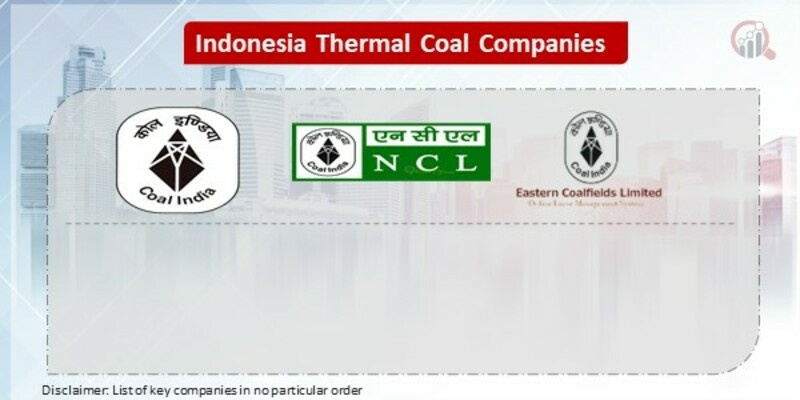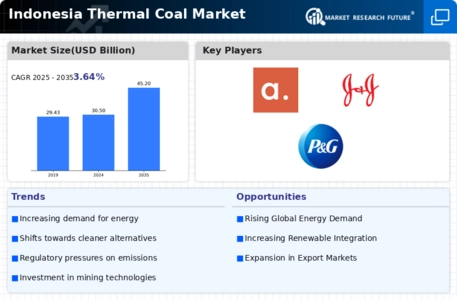Top Industry Leaders in the Indonesia Thermal Coal Market

Indonesia, boasting one of the world's largest coal reserves, stands as a powerhouse in the global thermal coal market. Its dynamic landscape, fueled by robust growth and a complex interplay of factors, presents a fascinating study in competitive strategies, market share dynamics, and the ever-evolving energy landscape.
Strategies Fueling the Fire:
Operational Excellence: Miners like PT Adaro Energy and PT Bayan Resources prioritize efficiency and cost reduction through automation, mine optimization, and logistics streamlining. This translates into competitive prices and secures long-term contracts with key buyers.
Product Diversification: Recognizing the transition to cleaner fuels, companies are diversifying into coking coal for steelmaking and exploring low-carbon technologies like carbon capture and storage (CCS) to maintain market relevance.
Vertical Integration: Giants like PT Bumi Resources are integrating upstream (mining) and downstream (power generation) operations, creating a stable supply chain and reducing reliance on external market forces.
Sustainability Prowess: The pressure for environmental responsibility is pushing players to adopt sustainable mining practices, invest in renewable energy projects, and engage with local communities. PT Kaltim Prima Coal's commitment to community development through education and healthcare initiatives is a prime example.
Global Ambitions: Indonesian miners are actively seeking new export markets beyond traditional destinations like Japan and Korea. PT Bukit Asam, for instance, has entered into partnerships with Vietnamese power companies, expanding its reach and mitigating dependence on single markets.
Factors Dictating the Market Share Pie:
Coal Quality: Indonesia boasts high-quality, low-sulfur coals, making them attractive to power plants seeking cleaner combustion and emission compliance. PT Adaro's "Green Coal" initiative exemplifies this focus on quality and environmental consciousness.
Infrastructure Development: Efficient port infrastructure and transportation networks are crucial for swift and cost-effective coal delivery. Government investments in port expansion and rail connectivity are boosting the competitiveness of Indonesian coal.
Government Policies: Indonesia's export taxes and domestic market obligations influence coal pricing and availability. Recent policy changes aimed at increasing domestic coal utilization for power generation may impact export volumes and market dynamics.
Global Coal Prices: The fluctuating fortunes of global coal prices directly affect Indonesian miners' profitability and competitiveness. The recent decline in Newcastle coal prices, for instance, has put pressure on Indonesian coal exports.
-
Environmental Regulations: Stringent environmental regulations in key importing countries, like Japan, are prompting Indonesian miners to invest in cleaner coal technologies and showcase environmental responsibility to maintain market access.
Key Companies in the Thermal Coal market include
- Bharat Coking Coal Limited
- Northern Coalfields Limited
- Eastern Coalfields Limited
Recent Developments:
-
July 2023: Heavy rains disrupt production in several coal mines, causing temporary supply shortages and price hikes.
-
September 2023: A protest against a coal mine expansion project in South Kalimantan highlights the growing social and environmental concerns surrounding the coal industry.
-
October 2023: Indonesia participates in the COP28 climate summit, pledging to reduce greenhouse gas emissions and invest in renewable energy sources, raising questions about the long-term future of the coal market.
-
November 2023: A consortium led by PT Adaro Energy wins a bid to develop a new coal-fired power plant in Java, sparking debates about the balance between energy security and environmental sustainability.










